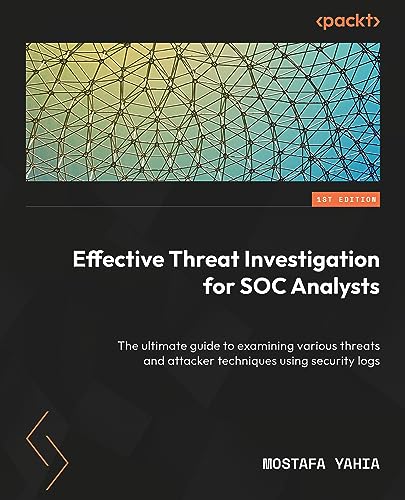El Salvador Prison Transfers: Jeanine Pirro's Stance On Due Process Sparks Debate

Table of Contents
Jeanine Pirro's Position on El Salvador's Prison Transfers
Jeanine Pirro, a former prosecutor and prominent television personality, has been a vocal commentator on El Salvador's crackdown on gangs. While the specifics of her statements require further investigation and sourcing of specific quotes and appearances, it is understood that her position generally reflects a support for strong measures to combat crime, potentially at the cost of some procedural safeguards.
- Specific quotes from Pirro: (This section needs to be filled with actual quotes from Pirro's public statements. Finding verifiable quotes from her speeches, interviews, or social media posts is crucial for accuracy and SEO.) For example: “[Insert direct quote here supporting her stance].”
- Media appearances: (This section needs details on specific TV shows, radio interviews, or social media posts where she discussed the El Salvador prison transfers.) For example: "Pirro discussed the transfers on her Fox News show on [date]."
- Key arguments: (This should detail the core of Pirro's arguments. Does she prioritize public safety above all else? Does she believe the ends justify the means in this context?) For example: "Pirro may argue that the drastic measures are necessary to curb rampant gang violence and protect the civilian population."
- Links to official statements: (This section requires links to official sources verifying Pirro's position.) For example: "[Link to a news article quoting Pirro directly]".
Arguments For the El Salvador Prison Transfers
The Salvadoran government justifies the mass prison transfers as a crucial step in its fight against powerful gangs. The rationale primarily centers on enhancing national security and reducing crime rates.
- Security and crime reduction: The government claims these transfers significantly disrupt gang operations, communication, and recruitment efforts. This strategy aims to cripple the gangs' ability to control territories and commit crimes.
- Improved public safety: (This requires statistics and data to support the claim of improved public safety following the transfers. This should include verifiable sources.) For example: "The government cites a [percentage]% decrease in homicides since the implementation of the prison transfer program."
- Disrupting gang activities: The transfers aim to prevent gang members from coordinating attacks and criminal activities from within the prison system. By isolating gang leaders, the government hopes to diminish their influence and effectiveness.
Concerns Regarding Due Process in El Salvador Prison Transfers
Despite the government's claims, serious concerns remain about potential human rights violations related to the El Salvador prison transfers. The lack of transparency and due process is a major cause for alarm among human rights organizations.
- Fair trials and legal representation: Questions arise regarding whether all transferred individuals received fair trials and adequate legal representation before being moved.
- Arbitrary detention and lack of transparency: The process lacks transparency, raising concerns about arbitrary detention and the potential for abuse of power.
- International condemnation: Human Rights Watch, Amnesty International, and other international organizations have expressed deep concern regarding potential human rights violations. (Links to reports from these organizations are necessary here.)
Counterarguments Against the El Salvador Prison Transfers
Critics argue that the El Salvador prison transfers constitute a serious breach of human rights and international law, highlighting the long-term consequences of such actions.
- Human rights abuses: Critics point to the potential for torture, ill-treatment, and other human rights abuses within the overcrowded and potentially dangerous conditions of the new facilities.
- Long-term consequences: The mass transfers could lead to further instability, fueling resentment and potentially escalating violence in the long term.
- Negative impact on the rule of law: The actions undermine the rule of law and the judicial system, setting a dangerous precedent for future actions. (Links to articles and reports supporting these concerns are needed.)
International Response to El Salvador Prison Transfers
The El Salvador prison transfers have drawn considerable international attention, with varying reactions from international bodies and governments.
- Statements from international organizations: The UN and OAS have expressed concerns about the potential human rights violations associated with these transfers, calling for due process to be respected.
- Government stances: Some governments have voiced concerns, while others have remained silent or expressed support for El Salvador's efforts to combat crime. (This needs specific examples of government responses.)
- Potential sanctions: The international community's response could range from diplomatic pressure to potential sanctions depending on the ongoing developments and assessments of human rights violations.
Conclusion
The debate surrounding El Salvador prison transfers is complex and multifaceted. Jeanine Pirro's outspoken stance highlights the central conflict between the government's need to maintain security and the fundamental human rights of those incarcerated. While the Salvadoran government emphasizes crime reduction, critics raise serious concerns about due process violations and the potential for human rights abuses. The international community's response will significantly shape the long-term consequences of these actions. The debate surrounding El Salvador prison transfers, and Jeanine Pirro's involvement, demands continued scrutiny. Further investigation into these actions and their implications is crucial for understanding the complex interplay between public safety and human rights. Stay informed on the ongoing developments in El Salvador and the broader discussion on due process in relation to El Salvador prison transfers.

Featured Posts
-
 Uk City Faces Challenges The Impact Of Hundreds Of Caravans
May 09, 2025
Uk City Faces Challenges The Impact Of Hundreds Of Caravans
May 09, 2025 -
 Doohan Receives Warning From Alpine Team Boss F1 News
May 09, 2025
Doohan Receives Warning From Alpine Team Boss F1 News
May 09, 2025 -
 Samuel Dickson A Canadian Lumber Barons Legacy
May 09, 2025
Samuel Dickson A Canadian Lumber Barons Legacy
May 09, 2025 -
 U S Federal Reserve Holds Steady Rate Decision Amidst Growing Economic Pressures
May 09, 2025
U S Federal Reserve Holds Steady Rate Decision Amidst Growing Economic Pressures
May 09, 2025 -
 Fur Rondy Shorter Race Unwavering Spirit
May 09, 2025
Fur Rondy Shorter Race Unwavering Spirit
May 09, 2025
Latest Posts
-
 Cybercriminal Accused Of Millions In Office365 Executive Email Theft
May 10, 2025
Cybercriminal Accused Of Millions In Office365 Executive Email Theft
May 10, 2025 -
 Three Years Of Data Breaches Cost T Mobile 16 Million In Fines
May 10, 2025
Three Years Of Data Breaches Cost T Mobile 16 Million In Fines
May 10, 2025 -
 Office365 Breach Leads To Millions In Losses Insider Threat Investigation
May 10, 2025
Office365 Breach Leads To Millions In Losses Insider Threat Investigation
May 10, 2025 -
 Will Androids Updated Interface Attract Gen Z
May 10, 2025
Will Androids Updated Interface Attract Gen Z
May 10, 2025 -
 Federal Charges Millions Stolen Through Office365 Executive Email Compromise
May 10, 2025
Federal Charges Millions Stolen Through Office365 Executive Email Compromise
May 10, 2025
